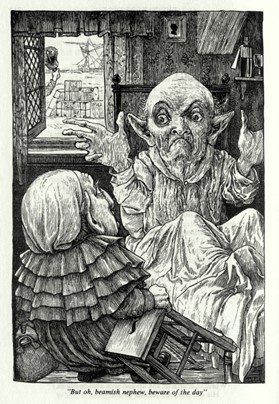Thanks to John Quiggin and Tim Lambert, we have pointers to yet another uninformed anti-environmentalist loyally repeating the party line that DDT has been banned for use against malaria, and that the ban has cost millions of lives. This is a crock, as a quick visit to the Malaria Foundation will confirm.[1]
While flogging this one around the track one more time, Miranda Devine takes a moment to muse on the attitudes that prevailed before the publication of Silent Spring:
Advertisements of the time, which today seem preposterous, extolled it as a benefactor of all humanity, with slogans such as “DDT is good for me-e-e”.
Tim Lambert supplied a link to an advertisement with that slogan. The same rendering has been widely reprinted. The advertisement perfectly captures the cheerful carelessness that led to over a billion pounds of the stuff in the US alone being applied to everything in sight. The singing cow and the dancing cucumber seemed about right … but … I did wonder how much the company paid whoever came up with the name “Killing Salt Chemicals,” and the reference to Star Trek seemed out of place. So I looked up the original (in Time magazine of June 30, 1947) and compared it with the reprinted version. The linked-to version has been modified from the original, but not by much:

The blithe willingness to sprinkle DDT on everything from the barley to the baby, celebrated so colorfully in this advertisement, led in just a few years to widespread insecticide resistance among malaria-carrying mosquitoes. In Sri Lanka, Gordon Harrison observed[2] that
Anopheles culifacies, completely susceptible to DDT when the spray stopped in 1964 was now [in 1968] found resistant presumably because of the use of DDT for crop protection in the interim. Within a couple of years, so many culifacies survived that despite the spraying malaria spread in 1975 to more than 400,000 people.
This pattern was repeated in many places. If governments had paid more attention to Rachel Carson in the 1960s, this weapon against malaria might have retained its potency.
[1]“But,” some will object, “didn’t some environmental groups want to ban all use of DDT?” They sure did. And they got talked out of it. The simple fact is that DDT has never been banned as an antimalarial agent.
[2]Mosquitoes, Malaria and Man, Gordon Harrison, E. P. Dutton, 1978, p. 255

1 comment